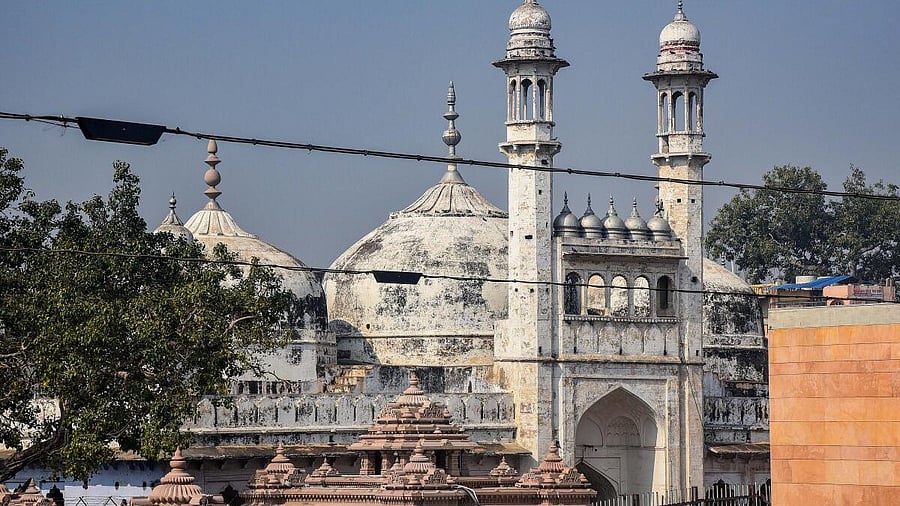
The Gyanvapi mosque, in Varanasi.
Credit: PTI Photo
New Delhi: Committee of Management of the Gyanvapi Mosque at Varanasi has filed a plea in the Supreme Court opposing petitions which challenged validity of the Places of Worship Act, 1991.
It contended that almost three decades from the enactment of the 1991 Act, the challenge to the law has been made by the petition, which is replete with rhetorical and communal claims which could not be entertained by this court.
"The consequences are bound to be drastic," the plea claimed, referring to the Sambhal case, where a recent survey ordered led to widespread protest and reported deaths of six persons.
A batch of petitions filed by advocate Ashwini Kumar Upadhyay challenging validity of the 1991 has been pending before the Supreme Court and the Centre is yet to file its affidavit, clarifying its stance, to the notice issued in March, 2021.
The fresh intervention plea by the mosque committee feared the declaration sought would mean such disputes rising their head in every nook and corner of the country and ultimately obliterate the rule of law and communal harmony.
The application also cited a number of claims made in the past few years with regard to various mosques and dargahs, including the Shahi Idgah Masjid at Mathura, the Quwwat-ul-Islam Mosque, Qutub Minar, Delhi, Kamal Maula Mosque, Bhojshala Complex, Madhya Pradesh, Bija Mandal Mosque, Vidisha, Madhya Pradesh, Teeley Wali Masjid, Lucknow, Uttar Pradesh, Ajmer Sharif Dargah, Rajasthan, the Jama Masjid and dargah (mausoleum) of Sufi saint Shaikh Salim Chishti at Fatehpur Sikri, Uttar Pradesh, Baba Budangiri Dargah, Hosakaoti, Karnataka, among others.
The applicant further claimed the petition has been filed with mischievous intent as repeated suits being filed concerning various mosques in the country are having the 1991 Act as their biggest hurdle.
The pending petition was thus meant to enable filing of such suits and also obviate the question of their maintainability, it claimed.
It also maintained the purported grievance of the petitioner as regards ancient rulers of the past cannot be addressed by this court nor is a valid ground for challenging the constitutional validity of the 1991 Act.
"The rhetoric arguments seeking a sort of retribution against the perceived acts of previous rulers cannot be made the basis for a constitutional challenge," the applicant said.
It also stated the interpretation of the 1991 Act by the five judge bench of the Supreme Court in Ayodhya case has left no manner of doubt as to the reasons for the enactment and the provisions being a core component of the principle of non-retrogression and secular values.
